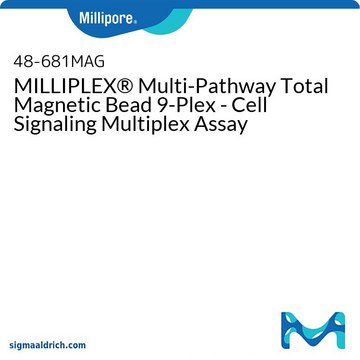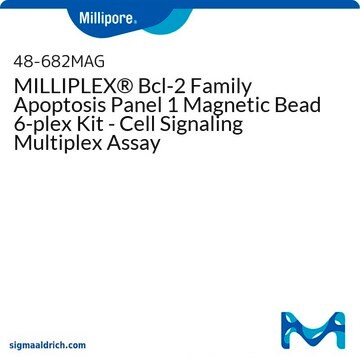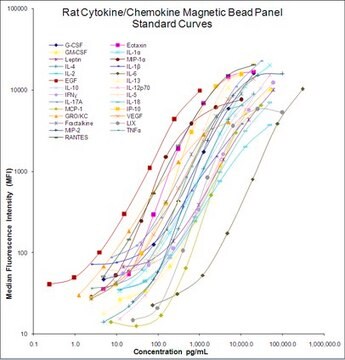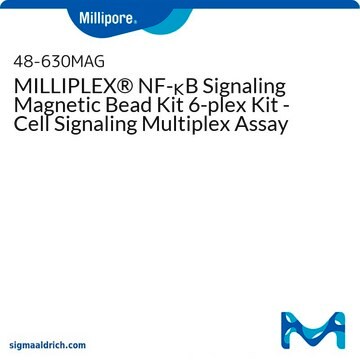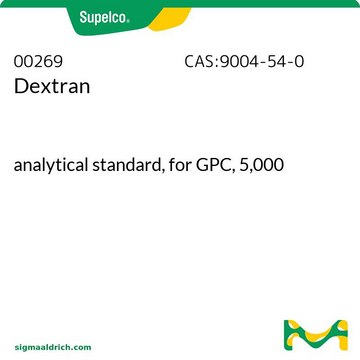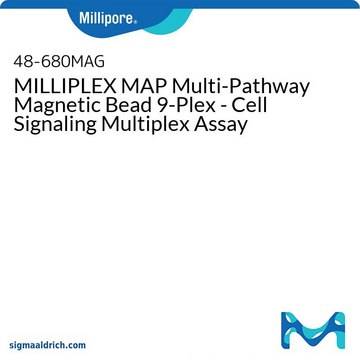48-669MAG
MILLIPLEX® Early Apoptosis Magnetic Bead 7-plex Kit - Cell Signaling Multiplex Assay
Synonym(s):
Cell Signaling Magnetic Beads, Cell Signaling Multiplex Kit, Total/Phospho Erk Kit
About This Item
Recommended Products
species reactivity
human
Quality Level
manufacturer/tradename
Milliplex®
technique(s)
multiplexing: suitable
detection method
fluorometric (Luminex® xMAP®)
storage temp.
2-8°C
General description
Specificity
Application
Packaging
Storage and Stability
Legal Information
Disclaimer
Signal Word
Danger
Hazard Statements
Precautionary Statements
Hazard Classifications
Acute Tox. 4 Oral - Aquatic Acute 1 - Aquatic Chronic 2 - Eye Dam. 1 - Skin Irrit. 2
Storage Class Code
10 - Combustible liquids
Certificates of Analysis (COA)
Search for Certificates of Analysis (COA) by entering the products Lot/Batch Number. Lot and Batch Numbers can be found on a product’s label following the words ‘Lot’ or ‘Batch’.
Already Own This Product?
Find documentation for the products that you have recently purchased in the Document Library.
Related Content
Exploring genotoxicity and DNA damage through multiplexing with MILLIPLEX® multiplex genotoxicity assays using Luminex® xMAP® technology enables the high-throughput measurement of phosphorylation levels of multiple proteins simultaneously and reduces sample volume, time, and cost.
Learn how multiplexing with MILLIPLEX® multiplex assays can help simplify cancer research by measuring multiple circulating biomarkers at once. Find multiplex panels to analyze JAK-STAT, mTOR, MAPK, SAPK, TGFβ signaling pathways, and more.
See how multiplexing the inflammation signaling pathway with MILLIPLEX® inflammation assays or cell signaling assays can help researchers bridge the gap between immunology and cell signaling, including investigating T cell signaling, Th Cell differentiation, inflammatory response signaling, and sepsis signaling.
Uncover how cells communicate with MILLIPLEX® cell signaling multiplex assays. Multiplexing with cell signaling phosphoprotein assays based on Luminex® xMAP® technology helps researchers measure phosphoproteins and total proteins within the same or different pathways from a single sample.
Our team of scientists has experience in all areas of research including Life Science, Material Science, Chemical Synthesis, Chromatography, Analytical and many others.
Contact Technical Service